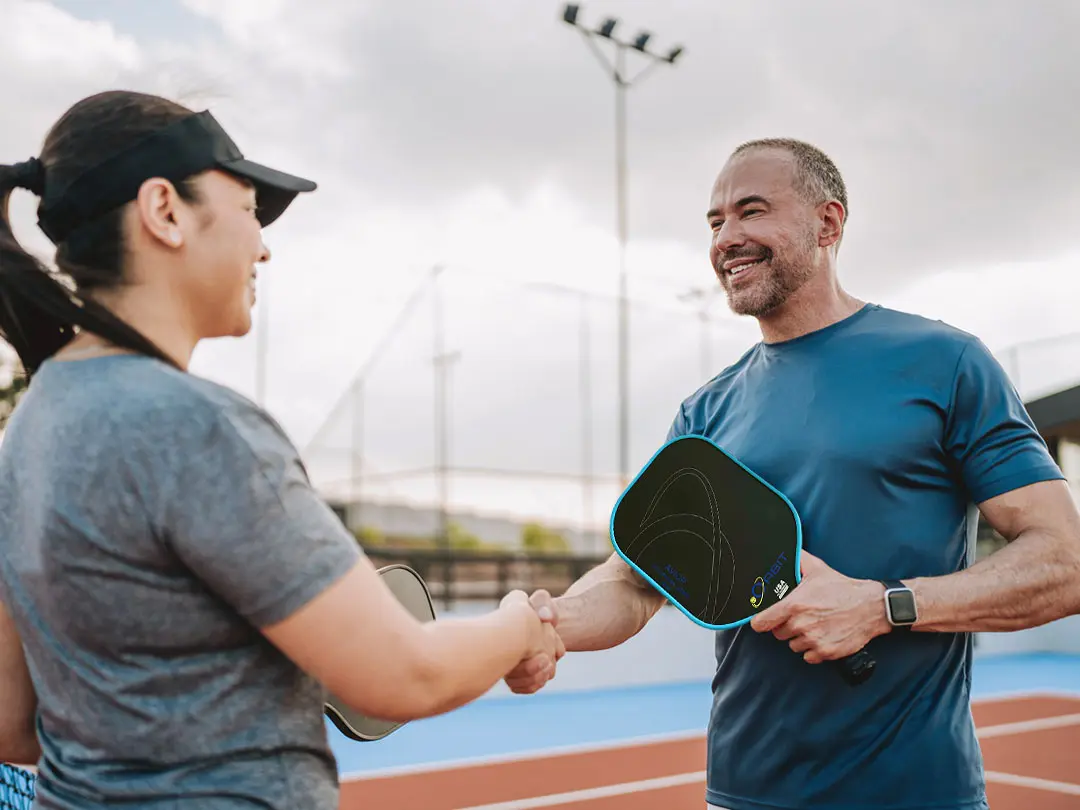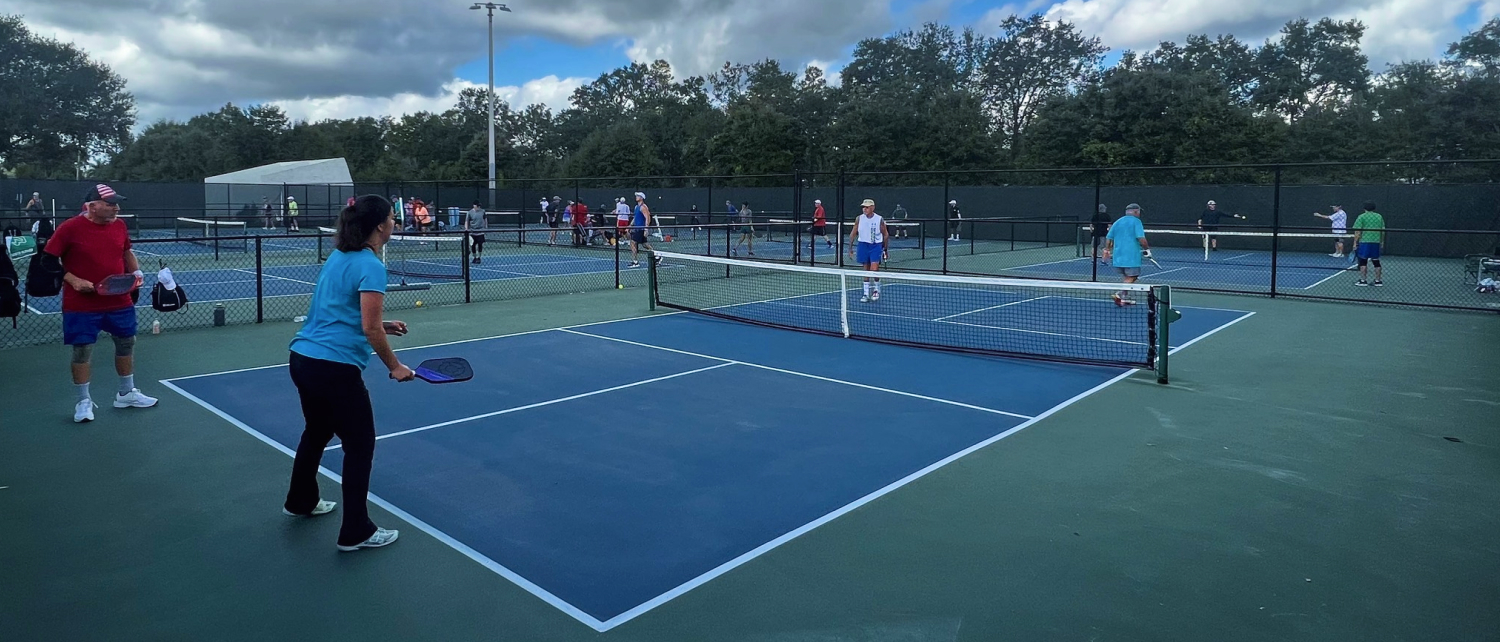
Pickleball is the fastest-growing sport in the United States, attracting players of all ages and skill levels. With its rapid rise, the demand for knowledgeable and effective coaches has never been higher. A good coach does more than simply run drills or feed balls across the net. The best coaches not only improve your technical skills, but also teach you how to think strategically, analyze mistakes, stay disciplined, and most importantly—believe in yourself.
Much like in tennis, where legendary coaches like Nick Bollettieri or Patrick Mouratoglou shaped players into champions, pickleball coaching requires a unique combination of technical expertise, teaching ability, and emotional intelligence. Below are the five essential qualities that separate great pickleball coaches from average ones.
1. The Ability to Teach Technical Skills
At the foundation of pickleball lies proper technique. Without it, even the most enthusiastic player will plateau quickly. A strong coach must not only know the technical elements of the game—footwork, paddle control, shot selection, grip pressure, and positioning—but must also be able to transfer that knowledge to the student in a way that sticks.
For example, teaching a student how to hit a consistent third shot drop is not just about telling them to “soften the hands.” It involves demonstrating the stroke, breaking it down step by step, and providing feedback that the student can process and apply immediately. Good coaches use multiple teaching tools: physical demonstration, verbal explanation, targeted drills, and even video analysis.
In tennis, the best coaches understand that each player has a different learning style—some are visual learners, others auditory, and still others kinesthetic. The same applies in pickleball. A great coach will adapt their teaching style to the student, ensuring the fundamentals are solid before moving forward. Without this skill, a coach may overwhelm or confuse a player rather than build them up.
2. Explaining the “Why” Behind Techniques and Tactics
Anyone can tell a player what to do. A great coach explains why it should be done. This distinction is crucial in pickleball, where decision-making is often the difference between winning and losing.
For instance, a student might wonder why they should keep their paddle up in the ready position instead of holding it at their side. Rather than simply enforcing the habit, a skilled coach explains that the higher paddle position allows for quicker reaction at the kitchen line, which is vital for controlling fast exchanges. When students understand the reasoning, they are more likely to adopt and internalize the habit.
Tactically, coaches must also explain the “why” behind strategies like stacking, resetting, or targeting the opponent’s weaker side. Tennis coaches often stress that knowledge builds confidence. When players know the tactical logic behind their actions, they commit fully and execute with greater conviction.
By teaching the “why,” pickleball coaches empower players to think independently and make smarter in-game decisions—skills that will serve them far beyond a single lesson.
3. Introducing Confidence and Self-Belief
Perhaps one of the most underrated qualities in a coach is the ability to make a student believe in themselves. Confidence is not just a mindset; it directly affects execution. A nervous player tends to tighten up, rush shots, and make unforced errors. A confident player, even with the same technical skill, will perform at a higher level.
Great coaches act as both teachers and motivators. They recognize when to push a student harder and when to offer encouragement. They build an environment where mistakes are not failures, but opportunities to grow. This is where confidentiality and trust come into play: a student must feel safe enough to be vulnerable, to admit weaknesses, and to take risks without fear of judgment.
In tennis, coaches often talk about “playing with freedom.” The same principle applies in pickleball. If a coach can instill belief, the player will swing freely, execute strategies with conviction, and handle pressure situations with greater composure. Without self-belief, even the most technically sound player will struggle when the game gets tight.
4. Teaching Students to Analyze and Correct Mistakes in Real Time
No coach can stand beside a player during a tournament, whispering advice between every rally. That is why one of the most valuable skills a pickleball coach can teach is self-analysis. Players must learn to recognize their mistakes, understand why they happened, and quickly make adjustments—all while the game is still going on.
For example, if a player keeps hitting volleys into the net, a coach might teach them to pause, breathe, and think: Was my paddle angle too steep? Was my contact point too low? Was I rushing? By developing this self-awareness, players begin to troubleshoot their own game.
In tennis, elite players constantly adapt during matches. Roger Federer often made subtle tactical adjustments mid-match without waiting for a coach’s input. Pickleball players should be trained the same way: to analyze patterns, recognize opponents’ tendencies, and apply corrections immediately.
A coach who teaches self-analysis creates independent athletes who can problem-solve under pressure. This not only improves performance but also builds resilience and mental toughness.
5. Teaching Discipline and Patience
Pickleball is a game of precision and control, not brute force. Many new players come from tennis, racquetball, or other sports where power dominates. But in pickleball, the ability to stay patient in a rally—waiting for the right ball to attack—is often the key to victory.
A great coach instills discipline in students, teaching them not to rush points or go for low-percentage shots. For example, instead of slamming a ball from below the net (which usually results in an error), a disciplined player resets the ball into the kitchen and waits for a higher, attackable shot.
Patience is equally critical. Some rallies in pickleball can last dozens of shots, especially at higher levels. Coaches must train players to remain focused and composed, resisting the urge to end the point too soon. In tennis, patience is taught through baseline rallies and endurance drills. In pickleball, it’s taught through dinking, resetting, and drilling consistency under pressure.
By instilling discipline and patience, coaches help students develop the maturity to win not just individual points, but entire matches.
Conclusion: More Than Just Hitting Balls
Pickleball coaching, much like tennis coaching, goes far beyond feeding balls across the net. The best coaches are mentors who blend technical knowledge, tactical awareness, psychology, and character-building into every lesson.
– They teach the skills needed to execute shots with confidence.
– They explain the “why” so players understand the game’s deeper strategies.
– They build belief, ensuring students trust themselves when the pressure is on.
– They create independent thinkers, able to analyze and adjust mid-match.
– They instill patience and discipline, the hallmarks of long-term success.
Pickleball may be a relatively new sport, but coaching principles rooted in tennis and other racquet sports provide a roadmap for success. A great coach doesn’t just create better players—they create stronger, smarter, and more confident individuals on and off the court.
Picture Credit: iStock






